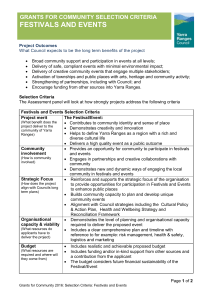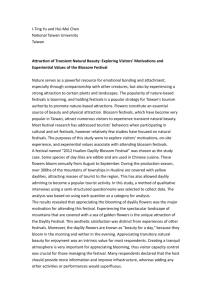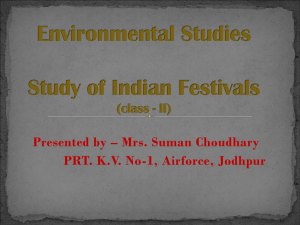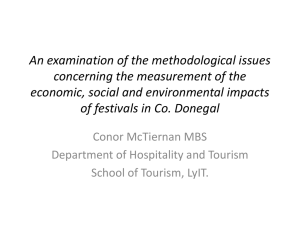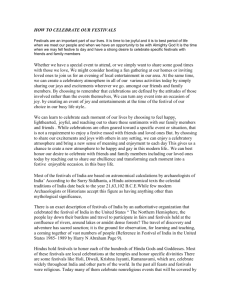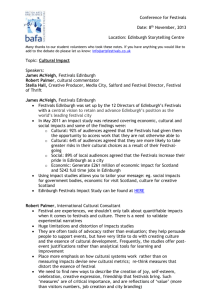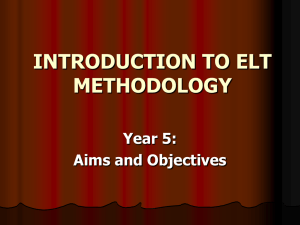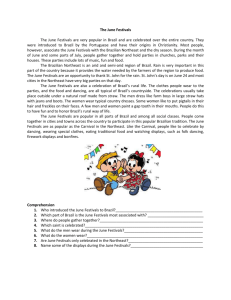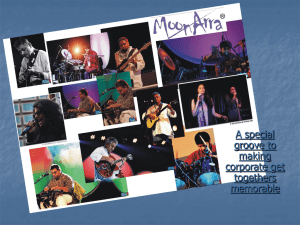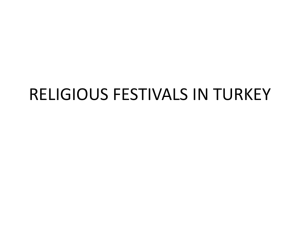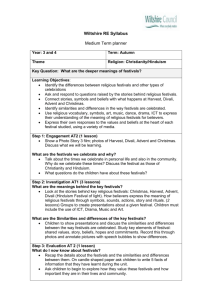Li-Jung Wang - Ethnic Festival, the Politics of
advertisement
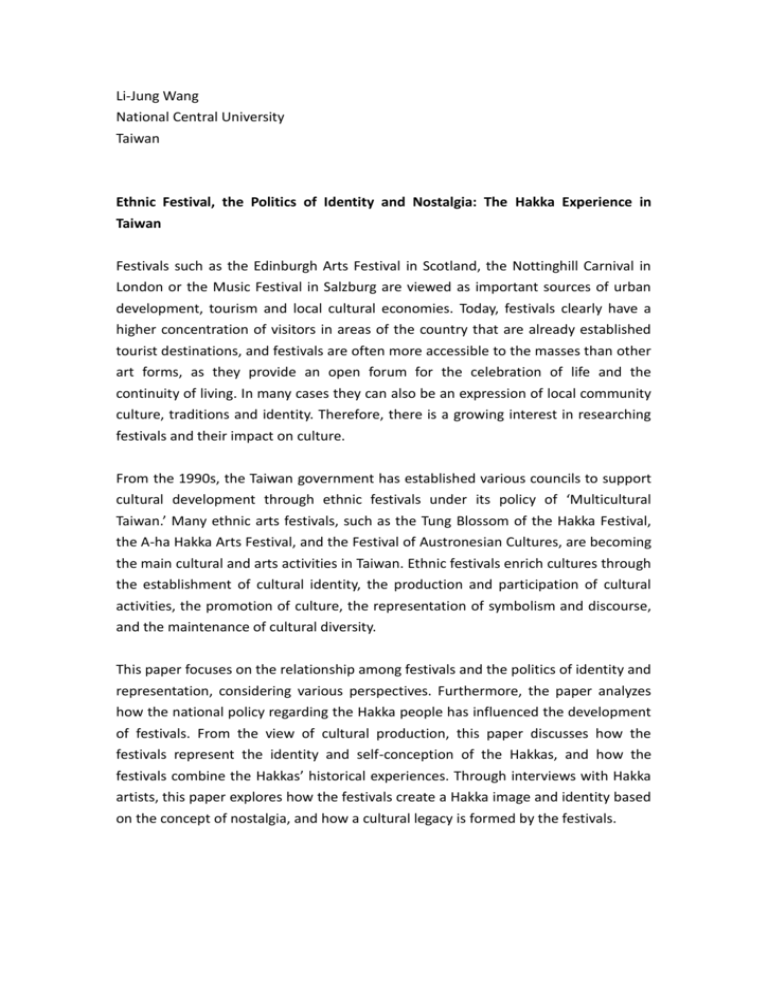
Li-Jung Wang National Central University Taiwan Ethnic Festival, the Politics of Identity and Nostalgia: The Hakka Experience in Taiwan Festivals such as the Edinburgh Arts Festival in Scotland, the Nottinghill Carnival in London or the Music Festival in Salzburg are viewed as important sources of urban development, tourism and local cultural economies. Today, festivals clearly have a higher concentration of visitors in areas of the country that are already established tourist destinations, and festivals are often more accessible to the masses than other art forms, as they provide an open forum for the celebration of life and the continuity of living. In many cases they can also be an expression of local community culture, traditions and identity. Therefore, there is a growing interest in researching festivals and their impact on culture. From the 1990s, the Taiwan government has established various councils to support cultural development through ethnic festivals under its policy of ‘Multicultural Taiwan.’ Many ethnic arts festivals, such as the Tung Blossom of the Hakka Festival, the A-ha Hakka Arts Festival, and the Festival of Austronesian Cultures, are becoming the main cultural and arts activities in Taiwan. Ethnic festivals enrich cultures through the establishment of cultural identity, the production and participation of cultural activities, the promotion of culture, the representation of symbolism and discourse, and the maintenance of cultural diversity. This paper focuses on the relationship among festivals and the politics of identity and representation, considering various perspectives. Furthermore, the paper analyzes how the national policy regarding the Hakka people has influenced the development of festivals. From the view of cultural production, this paper discusses how the festivals represent the identity and self-conception of the Hakkas, and how the festivals combine the Hakkas’ historical experiences. Through interviews with Hakka artists, this paper explores how the festivals create a Hakka image and identity based on the concept of nostalgia, and how a cultural legacy is formed by the festivals.

